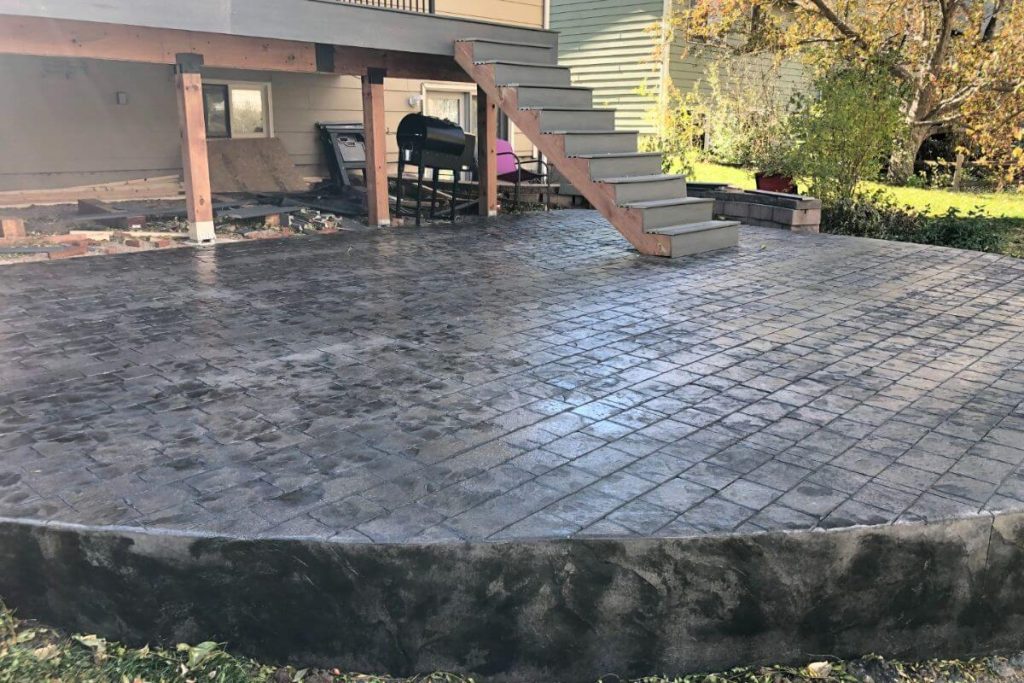Installing a concrete driveway can cost you anywhere from $3,000 to $10,000 or more. Prices depend on the type of concrete, labor rates, and other fees. You’ll pay more for high-quality materials and intricate designs. Basic concrete might cost around $4 to $7 per square foot, but decorative options like stamping and coloring can increase expenses. Labor costs usually range between $50 to $100 per hour, and permits and excavation can add a few thousand dollars. If you’re curious about how these factors influence your final cost, you’ll find all you need to know below.
Material Costs
When budgeting for a concrete driveway Cincinnati, OH, one of the primary considerations is the cost of materials. The type of concrete you choose will greatly impact your overall expenses. There are various concrete types available, each with different price points and performance characteristics.
Standard concrete is the most common and economical option. However, if you’re looking for something more durable or aesthetically pleasing, you might consider stamped or colored concrete, which can be more expensive.
Your choice of aggregates also plays an important role in material costs. Aggregates are the granular materials like sand, gravel, and crushed stone mixed with cement to create concrete. The size, type, and quality of these aggregates can affect both the price and the performance of the finished driveway.
For instance, recycled aggregates might save you money, but they could compromise the driveway’s durability. Conversely, high-quality, well-graded aggregates will cost more but offer better longevity and strength.

Labor Expenses
Labor expenses greatly impact the total cost of installing a concrete driveway. When planning your project, you’ll need to take into account contractor rates, which can vary widely based on experience, location, and the complexity of the job. Typically, contractors charge either by the hour or a flat rate for the entire project. On average, you might expect to pay between $50 to $100 per hour for skilled labor.
The installation timeline also plays an important role in determining labor costs. A standard concrete driveway installation usually takes about 2 to 3 days, depending on weather conditions and the size of the driveway. This timeline includes site preparation, forming, pouring, and finishing the concrete. If complications arise or additional work is required, the timeline can extend, increasing labor costs.
To get an accurate estimate, it’s wise to get multiple quotes from different contractors. Be sure to ask about their rates and how long they expect the installation to take. This way, you can budget more effectively and avoid any surprises.
Additional Fees
Aside from labor expenses, you’ll also need to factor in additional fees that can impact the overall cost of installing a concrete driveway. One key consideration is the permits required by your local municipality. Depending on where you live, these permits can range from $50 to $500, and they’re essential for ensuring your project complies with local building codes. Failing to secure the necessary permits can lead to fines and delays, so it’s important to handle this aspect early on.
Another significant expense to keep in mind is excavation costs. If your current driveway needs to be removed or if the ground needs significant preparation, you’ll incur additional charges. Excavation costs can vary based on the complexity of the job and the type of soil. On average, you might spend between $1,500 and $5,000 for excavation, especially if heavy machinery is required.
You should also be mindful of potential costs for drainage solutions, especially if your area is prone to heavy rainfall. Proper drainage is essential to prevent water damage and extend the lifespan of your driveway. By accounting for these additional fees, you’ll have a clearer picture of the total investment needed for your new concrete driveway.
Driveway Size and Shape
The size and shape of your driveway play a significant role in determining the overall cost of installation.
First, larger driveway dimensions naturally require more materials and labor, which increases costs. If your driveway needs to accommodate multiple vehicles or has a longer path, you’ll see a higher price tag. Smaller driveways, while more affordable, mightn’t meet your needs if you have multiple cars or large vehicles.
Shape factors also impact the cost. A basic rectangular shape is generally the most cost-effective option. However, if you’re looking for a customized design with curves or complex angles, expect to pay more. These intricate shapes require more detailed planning and precise execution, which can drive up labor costs.
Here are some aspects to keep in mind when planning your driveway:
- Length and Width: Larger dimensions mean more concrete and higher costs.
- Shape Complexity: Simple shapes are cheaper, while custom designs cost more.
- Site Preparation: Uneven terrain or existing structures can increase labor costs.
- Accessibility: Hard-to-reach areas may require special equipment, adding to expenses.
Decorative Options and Finishes
While the size and shape of your driveway set the foundation for costs, choosing decorative options and finishes can also greatly impact your budget.
One popular option is stamped patterns. These patterns can mimic the look of brick, stone, or even wood, giving your driveway a unique and upscale appearance. However, keep in mind that stamped patterns require additional labor and specialized tools, which can increase the overall cost of your project.
Another decorative option to keep in mind is colored concrete. Adding color to your concrete mix can transform a plain gray surface into a vibrant, eye-catching feature. You can choose from a variety of hues to match your home’s exterior or landscape. Although colored concrete is more expensive than standard concrete, it’s a worthwhile investment if you’re looking to enhance your property’s curb appeal.
Combining stamped patterns and colored concrete can create a stunning effect but will also markedly raise costs. It’s crucial to weigh the benefits against your budget constraints.
